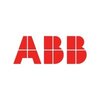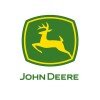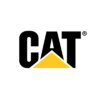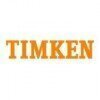
i
Cummins
Proud winner of ABECA 2024 - AmbitionBox Employee Choice Awards
Filter interviews by
Cummins Junior Engineer Trainee Interview Questions and Answers
Cummins Junior Engineer Trainee Interview Experiences
1 interview found
I applied via Campus Placement and was interviewed in Sep 2019. There were 4 interview rounds.
Interview Questionnaire
3 Questions
- Q1. What is the difference between two stroke and four stroke
- Ans.
Two stroke and four stroke engines differ in their working cycles and efficiency.
Two stroke engines complete a power cycle in two strokes of the piston, while four stroke engines complete it in four strokes.
Two stroke engines have a simpler design and are lighter, but are less fuel efficient and produce more emissions.
Four stroke engines have separate intake, compression, power, and exhaust strokes, resulting in better...
- Q2. Different between diesel engine and petrol engine
- Ans.
Diesel engines and petrol engines differ in fuel type, ignition process, compression ratio, and efficiency.
Fuel type: Diesel engines use diesel fuel, while petrol engines use gasoline.
Ignition process: Diesel engines use compression ignition, while petrol engines use spark ignition.
Compression ratio: Diesel engines have higher compression ratios than petrol engines.
Efficiency: Diesel engines are generally more fuel-eff...
- Q3. What is the function of turbo charger
- Ans.
A turbocharger is a device that increases the efficiency and power output of an internal combustion engine.
A turbocharger uses exhaust gases to drive a turbine, which in turn drives a compressor to force more air into the engine.
By increasing the amount of air entering the engine, a turbocharger allows more fuel to be burned, resulting in increased power.
Turbochargers are commonly used in diesel engines and high-perfor...
Interview Preparation Tips
Interview questions from similar companies

I applied via Recruitment Consultant and was interviewed before Oct 2017. There were 3 interview rounds.
Interview Questionnaire
1 Question
- Q1. What is the basic hydraulic system? What are the function of various valves? What are the function of various Pumps? Hydraulic schematics? What is the Engine? What are the four strokes of an engine? Explai...
- Ans.
The basic hydraulic system consists of various valves and pumps that work together to control fluid flow and pressure.
Valves in a hydraulic system control the direction, flow rate, and pressure of the fluid.
Examples of valves include check valves, relief valves, and control valves.
Pumps in a hydraulic system generate the flow and pressure of the fluid.
Examples of pumps include gear pumps, vane pumps, and piston pumps.
H...
Interview Preparation Tips
Skills: Communication, Body Language, Problem Solving, Analytical Skills, Leadership, Presentation Skills, Time Management, Decision Making Skills
Duration: <1 week

I applied via Referral and was interviewed before Jul 2021. There was 1 interview round.
(1 Question)
- Q1. Basic knowledge of role based on experience level
Interview Preparation Tips
Less knowledge will result in rejection

I applied via Naukri.com and was interviewed in Dec 2023. There were 2 interview rounds.
(2 Questions)
- Q1. Elevator related
- Q2. Regarding servicing of VFDs
(2 Questions)
- Q1. Identification of error
- Ans.
By conducting thorough system analysis, testing, and utilizing diagnostic tools.
Conduct thorough system analysis to understand the system's functionality and potential issues.
Perform testing to identify any abnormalities or malfunctions in the system or equipment.
Utilize diagnostic tools such as multimeters, oscilloscopes, and software programs to pinpoint errors.
Review error logs and system documentation for clues on ...
- Q2. Repairing
Interview Preparation Tips

I applied via Naukri.com and was interviewed in Mar 2023. There were 2 interview rounds.

(2 Questions)
- Q1. Do you know GDNT
- Q2. Do you know quality systems
Interview Preparation Tips
- PGDCA

Interview Questionnaire
4 Questions
- Q1. What about you?
- Q2. Previous company experience & responsibility ?
- Q3. Why you leaving this organisation?
- Q4. Your expectations?

Quality Engineer Interview Questions & Answers
EMERSON PROCESS MANAGEMENTposted on 28 Jun 2022
(1 Question)
- Q1. Quality tools, materials,
Interview Preparation Tips

Service Engineer Interview Questions & Answers
EMERSON PROCESS MANAGEMENTposted on 16 Apr 2024
I applied via Referral and was interviewed before Apr 2023. There was 1 interview round.
(5 Questions)
- Q1. Oil and gas industry rotating equipments experience must
- Q2. Explain about pumps, fans , gearbox compressor motor generator
- Ans.
Pumps, fans, gearboxes, compressors, motors, and generators are essential components in various mechanical systems.
Pumps are used to move fluids, such as water or oil, through a system.
Fans are used to create airflow for cooling or ventilation purposes.
Gearboxes are used to transmit power from one component to another at different speeds or torques.
Compressors are used to increase the pressure of a gas, such as in air ...
- Q3. Explain data collection process
- Ans.
Data collection process involves gathering, recording, and storing information for analysis and decision-making.
Identify the data needed for analysis
Determine the method of data collection (surveys, interviews, observations, etc.)
Collect data using appropriate tools and techniques
Ensure data accuracy and reliability
Store data securely for future reference
Analyze collected data to draw conclusions and make decisions
- Q4. Explain team management & work management
- Q5. Explain condition monitoring all tools
- Ans.
Condition monitoring of tools involves regularly checking and analyzing the performance and health of tools to prevent breakdowns.
Regularly inspect tools for signs of wear and tear
Use sensors to monitor tool performance in real-time
Analyze data collected to predict potential failures
Implement preventive maintenance based on monitoring results
Skills evaluated in this interview

I applied via Campus Placement and was interviewed in May 2023. There were 5 interview rounds.

It is along with technical written
A topic they will given to us and we should talk it about 1 min
(1 Question)
- Q1. There two students sit each other back to back. One diagram will given one have to describe and another one have to draw hearing the describe & vice versa
(3 Questions)
- Q1. What id diode ?
- Ans.
A diode is an electronic component that allows current to flow in one direction and blocks it in the opposite direction.
Diodes are made of semiconductor materials, such as silicon or germanium.
They have two terminals: an anode (positive terminal) and a cathode (negative terminal).
When a diode is forward-biased, it allows current to flow through it.
When a diode is reverse-biased, it blocks the current.
Diodes are commonl...
- Q2. Draw the diagram of diode
- Ans.
A diode is a two-terminal electronic component that allows current to flow in one direction and blocks it in the opposite direction.
A diode has an anode and a cathode terminal.
It is represented by a triangle with a line at the base.
The arrowhead of the triangle points towards the cathode terminal.
The line at the base represents the anode terminal.
The symbol of a diode is often accompanied by its part number or label.
- Q3. Compare conductor insulator semiconductor
- Ans.
Conductor, insulator, and semiconductor are materials with different electrical conductivity properties.
Conductor: Materials that allow the flow of electric current easily. Examples: copper, aluminum.
Insulator: Materials that do not allow the flow of electric current. Examples: rubber, glass.
Semiconductor: Materials with intermediate conductivity. Examples: silicon, germanium.
Interview Preparation Tips

I applied via Campus Placement and was interviewed before Jan 2023. There were 2 interview rounds.
In about 5s our education subject core related questions also EHS related questions
(10 Questions)
- Q1. Technical questions as like Subject core experience based questions
- Q2. Ourself information, family background, about work experience, also about 5s system,EHS system,7Qc tools ,5 core tool, about 8D ,about Lean,kizen. All about work experience, Technical questions about core ...
- Q3. New challenges accepteble capacity all over company related subjects core Questions, about working in rotational shift working
- Q4. Family background, salary related conformation, company facilities, working hours in company, traveling facilities food facilities also about girls safety
- Q5. Based on subject core our course related,what about work experience in Quality field, incoming inspection preinspction,final inspection
- Q6. Working experience, about QA tools vernier caliper, micrometre least count uses, about documents certificate of conference,also MRB system,About Rejected part hou to take decision, sampling inspection bas...
- Q7. All about work experience, family background, about our work experience,work strategy, customer complaint handling problem in Quality, Quality issues
- Q8. QA documents ,about 5 core tools, 8D , problem solving method,4m ,3m , about Lean, working experience, working hours ,new challenges,about salary expectation.
- Q9. Family background, comfortable for rotational shift working, about company related rules and regulations, company criteria for future in post , opportunity, about salary expectation
- Q10. Family background, comfortable for rotational shift working, about company related rules and regulations, company criteria for future opportunities, about salary expectation
Cummins Interview FAQs
Tell us how to improve this page.
Cummins Interviews By Designations
- Cummins Diploma Trainee Engineer Interview Questions
- Cummins Intern Interview Questions
- Cummins Junior Shop Manager Interview Questions
- Cummins Junior Manager Interview Questions
- Cummins Quality Engineer Interview Questions
- Cummins Product Design Engineer Interview Questions
- Cummins Service Engineer Interview Questions
- Cummins Design Engineer Interview Questions
- Show more
Interview Questions for Popular Designations
- Junior Engineer Interview Questions
- Junior Engineer Electrical Interview Questions
- Junior Engineer Production Interview Questions
- Junior Mechanical Engineer Interview Questions
- Junior Quality Engineer Interview Questions
- Junior Technician Interview Questions
- Junior Engineer - Quality Assurance Interview Questions
- Junior Software Developer Interview Questions
- Show more
Interview Questions from Similar Companies
Fast track your campus placements
Cummins Junior Engineer Trainee Reviews and Ratings
based on 2 reviews
Rating in categories
|
Junior Shop Manager
1.4k
salaries
| ₹1.7 L/yr - ₹10.5 L/yr |
|
Junior Manager
832
salaries
| ₹2.5 L/yr - ₹10.6 L/yr |
|
Diploma Trainee Engineer
512
salaries
| ₹1.1 L/yr - ₹3 L/yr |
|
Design Engineer
333
salaries
| ₹2.1 L/yr - ₹9.3 L/yr |
|
Service Engineer
289
salaries
| ₹1.5 L/yr - ₹8.5 L/yr |

John Deere

ABB

KONE

Caterpillar Inc
- Home >
- Interviews >
- Cummins Interview Questions >
- Cummins Junior Engineer Trainee Interview Questions












